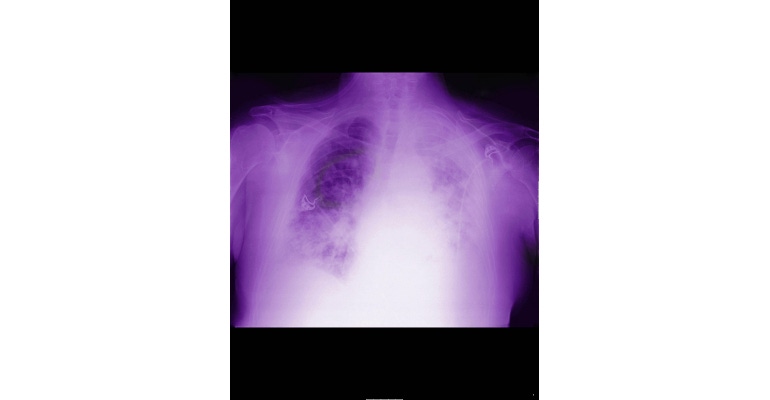Putting Artificial Intelligence to Work in Cancer Diagnosis and Treatment
AI can help improve cancer diagnosis, aid clinical decision-making, and lead to better health outcomes.

Despite major advances in treatment and diagnosis over the past decades, cancer still ranks as a leading cause of mortality and a major impediment to extending life expectancy worldwide. Artificial intelligence's future involvement in healthcare, particularly in the detection and treatment of cancer, is anticipated to take a variety of forms, ranging from identifying a specific form of cancer to evaluating which therapy method may best treat that particular instance. AI promises to increase customization of cancer care and help individuals live with the illness with a greater quality of life and fewer side effects.
Using ArtificiaI Intelligence to Improve Cancer Screening
In order to discover cancer in its most treatable stage, screenings are meant to monitor patients who do not show any symptoms proactively. U.S. Preventative Services Task Force recommends screening for breast, cervical, colorectal, and lung cancer.
Lung cancer is the world's deadliest cancer, with a five-year mortality rate of 75% for individuals diagnosed with it. Although tobacco use is the number one risk factor, research reveals that occupational exposure to lung carcinogens such as asbestos, beryllium, cadmium, chromium, diesel fumes, nickel, vinyl chloride, and silica is increasingly relevant in the development of this disease. The outlook is considerably better when cancer is discovered early.
Lung cancer screening using computed tomography (CT) has been shown to be extremely efficient in lowering the death rate associated with the disease. It is estimated that screening might cut this fatality rate by as much as 20%. However, substantial hurdles continue to limit the efficiency of CT screening. Even highly skilled radiologists might overlook signs of lung cancer in some scans, delaying detection and necessary therapy.
Researchers have discovered encouraging results when using an AI algorithm to detect indicators of lung cancer on scans. Research published in JAMA Network Open found that an AI system trained to identify pulmonary nodules on chest radiographs may enhance lung cancer identification. Even more accurate than radiologists, the algorithm was found to detect cancers and malignant growths in a scanning investigation. CT screening false positives and false negatives were also minimized by this method.
AI Aids in the Treatment of Rare and Aggressive Malignancies
In a preliminary trial, AI is being used to assess patients who are receiving treatment for infrequent cancers linked with occupational exposure to asbestos—a cancer-causing mineral that was used extensively in many industries. Scientists have created a prototype imaging system that has been shown to be successful in the detection and treatment of mesothelioma—a rare and fatal cancer that develops in the lining of the lungs or abdomen as a result of asbestos fiber exposure—and has the potential to expedite much-needed advances in diagnosis and treatment.
Patients undergoing treatment for mesothelioma can be evaluated using AI as part of a prototype imaging system that might revolutionize the way patients with the condition are cared for. The researchers investigated the viability of a technique for automatically identifying mesothelioma tumors and their borders on CT scans, a process known as image segmentation. Subsequent phase-two funding has enabled the construction of a prototype algorithm that does this using a trained AI system. This breakthrough opens the door for an AI system that might significantly increase the efficiency of clinical trials as well as the precision and reliability of assessments of treatment response in the clinic.
The effectively optimized AI program might possibly find mesothelioma on a CT scan and estimate its volume, enabling comparison with earlier measurements and reducing the cost of clinical trials in the process. An important step in developing this system is the training procedure, which requires that a human “draw around” all regions of mesothelioma on each CT image to teach the AI what this looks like. Phase one revealed that this procedure, known as ground truth generation, required the expertise of a mesothelioma clinician with extensive knowledge of mesothelioma images and the anatomy of the chest because it proved to be extremely difficult for an imaging technician to carry out successfully.
At the moment, the length of survival following diagnosis is bleak, as the vast majority of people with malignant pleural mesothelioma is diagnosed at an advanced stage. Treatment options for mesothelioma including chemotherapy, radiation, and surgery, are limited, and clinical trials are critical for the development of new, more-effective treatments. This AI system will enable clinical trials of novel medicines to be conducted more quickly since it will be more efficient at recognizing mesothelioma on CT images.
Integration of AI Technology in Cancer Care Could Improve the Quality of Life
Treatment-related issues are common in cancer patients, resulting in a worse quality of life, a shorter survival time, and an overuse of emergency department and hospital services. AI may potentially have use in the treatment of cancer patients who are experiencing adverse effects as a result of their treatments.
Chemotherapy regimens may be improved by using AI to manage the use of drugs and predict their tolerance. AI can assist physicians in making the best treatment decisions, reduce unnecessary procedures, and help oncologists improve cancer treatment regimens for their patients. In the field of cancer chemotherapy, AI focuses on the interactions between medications and patients. Among AI's most important achievements in this field are the management of chemotherapy medicine usage, the prediction of drug tolerance, and the optimization of chemotherapy regimens.
About the Author(s)
You May Also Like



.png?width=300&auto=webp&quality=80&disable=upscale)
